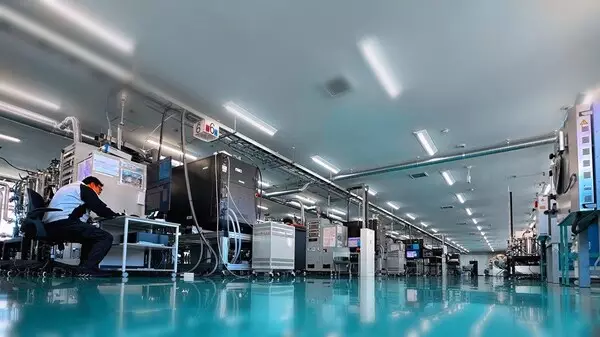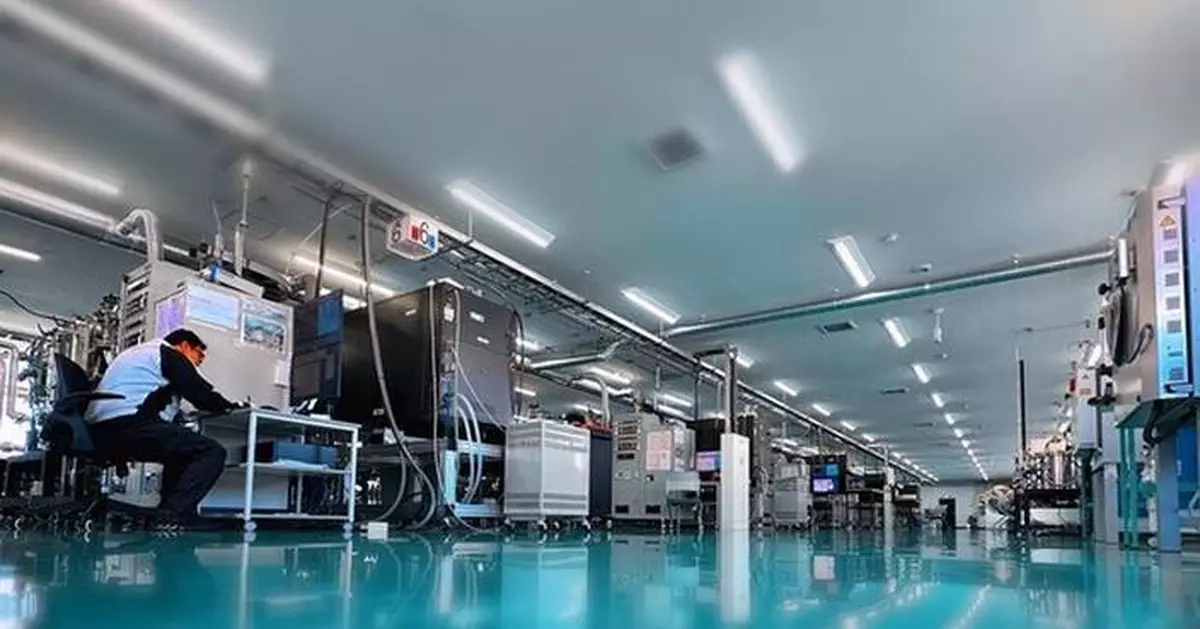Faraday Factory, the world's largest manufacturer of high-temperature superconductors, announces achievement of 5,000 km cumulative deliveries to disruptive fusion projects worldwide
TOKYO, Sept. 17, 2024 /PRNewswire/ -- Faraday Factory Japan LLC has passed a milestone of 5,000 km, or 1 Giga-Ampere-meter, cumulative deliveries of high-temperature superconductor (HTS) to fusion companies. The users of this enabling superconductor material are spread over four continents and pursue different fusion concepts – tokamak, stellarator, levitating dipole, and magnetic mirror. Superconductors produced by Faraday Factory Japan can be found in almost all fusion machine prototypes currently under development.
Fusion is a limitless source of clean energy, which is urgently needed to reverse climate change. In order to produce energy, very hot plasma must be tightly contained in a fusion reactor by powerful electromagnets. High-temperature superconductor technology has recently enabled such magnets, placing fusion energy finally within engineers' reach. After Bob Mumgaard, Co-Founder and CEO of Commonwealth Fusion Systems, the economically competitive fusion power requires credible innovation and progress, while the development landscape has several types of fusion power machines.
The scale-up of high-temperature superconductor production is of paramount importance for the emerging fusion industry, which has recently attracted over $7 billion of investment. According to the recent report by Fusion Industry Association, over 71% of fusion companies anticipate starting to deliver power to the grid before 2035. To make this happen, multiple prototypes of fusion machines must be built that would consume ~300,000 km of high temperature superconductor.
Faraday Factory Japan CEO Sergey Lee says, "We have succeeded in scaling up our production to thousands of kilometers while maintaining the extremely high quality of superconductor that every fusion developer needs. By round-the-clock operation, we deliver just enough HTS product to keep multiple fusion projects on fast track. Further down the road, we plan to continue our exponential growth to facilitate fusion energy deployment to Gigawatt scale and beyond".
Thea Energy Co-Founder and CEO Brian Berzin stated, "Recent advancements in HTS are allowing companies including Thea Energy to build fusion systems demonstrating the viability and economics for commercial power plants. For the fusion community, the importance of this rapid scaling of HTS capacity is a meaningful step towards the deployment of fusion energy on the grid. We appreciate Faraday Factory's strong commitment to supporting us and our mission of creating abundant clean energy for a sustainable future."
Proxima Fusion Co-Founder and COO Lucio Milanese stated, "Proxima aims to design and build QI stellarators for fusion power plants, drawing unique expertise from the $1.5B+ W7-X project in Germany. HTS technology dramatically increases our design space by enabling higher magnetic fields compared to any other material available. We will need many thousands of kilometers of HTS tape for our magnets and appreciate the effort of Faraday Factory to build a robust supply."
Commonwealth Fusion Systems Chief Science Officer and Co-Founder Brandon Sorbom said, "This is a huge milestone in the development of the HTS supply chain and a testament to Faraday Factory's relentless pursuit of improvement. It's remarkable how far we've come since five years ago, when every meter of tape CFS obtained was hard won. Now we receive not 100's of meters of tape in a shipment but 100's of kilometers. Scaling up HTS tape manufacturing has been crucial to CFS' ability to build our SPARC tokamak and show a strong future for fusion energy."
OpenStar Technologies CEO and Founder Ratu Mataira said, "OpenStar is the only company in the world building a levitated dipole for clean fusion energy. Our Junior magnet integrates key-enabling technologies based on high temperature superconductors like coils and flux pumps. The availability of HTS tape is critical for the rapid iteration cycles that we leverage in our company to retire risk for orders of magnitude less capital, and in a fraction of the time, than any other fusion scheme on the planet."
About Faraday Factory Japan:
https://www.faradaygroup.com/en/
https://www.youtube.com/watch?v=oP51LC16nok
https://jp.linkedin.com/company/faraday-factory-japan
** The press release content is from PR Newswire. Bastille Post is not involved in its creation. **

Faraday Factory announces it has delivered over 5,000 km of high-temperature superconductor tape to fusion industry










